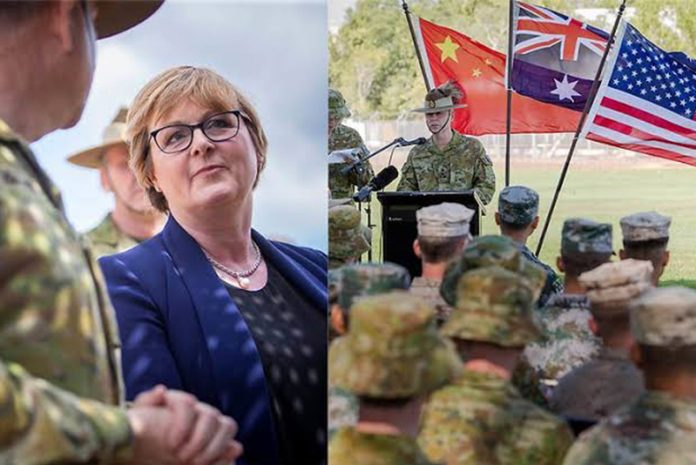President Donald Trump is not a person that would be associated with subliminal messaging. In fact, the frequency and often ferocity of his tweeting and unfettered statements (usually without prior consultation with his political or defence teams), often result in uncertainties and an inability by international allies and non-aligned countries to clearly identify a commitment to them that they can buy-into and support.
The recent visit to Washington DC by Australian Senator and Minister for Defence, Linda Reynolds, was perhaps a little too subliminal. Speaking at the Hudson Institute, she spoke of the bond between Australia and the United States. But she also spoke about the realities of maintaining a ‘rules based order’ in the Indo-Pacific, something that many strategist currently believe is being eroded.
She spoke of “momentous changes in the region – changes that have delivered unprecedented peace and prosperity”, but warned that this had not happened by chance and was in large part due to “diplomatic efforts for several decades.”
Reynolds underlined the need for continued “economic integration and liberalisation facilitated by forums such as the Asia-Pacific Economic Cooperation forum.” She included an “expanding network of free trade agreements and the Regional Comprehensive Economic Partnership.”
She further underlined that Australia was helping to champion regional trade arrangements through cooperation, collaboration and consensus.
Perhaps strongest of all were here comments regarding China. “China’s economic dynamism and our trade complementarities make Australia and China natural economic partners for securing the prosperity of our respective nations,” she said, adding that it “also applies to broadening and intensifying our partnership where it can bring benefits for the region.”
She added that Australia “does not take for granted a regional default inclination towards the advantages of existing rules-based systems – nor should the United States. As clear as those advantages are to us, we must constantly prove them to others. Through actions and demonstrable sovereign respect, not just words.”
This is set against a growing international angst about where the Trump Administration has been leading the United States. According to Eliot Cohen, a Professor of Strategic Studies at Johns Hopkins University’s School of Advanced International Studies writing in the January/February edition of Foreign Affairs, President Trump’s foreign policy vision “is distrustful of US allies, scornful of international institutions, and indifferent, if not downright hostile, to the liberal international order that the United States has sustained for nearly eight decades.”
The threats to supporting NATO, the withdrawal from numerous international economic commitments such as the Trans-Pacific Partnership Agreement between Australia, Brunei, Canada, Chile, Japan, Malaysia, Mexico, New Zealand, Peru, Singapore, Vietnam and the US. Many believed that the agreement would have in fact benefited the US by reducing the signatories’ dependence on Chinese trade. And of course there is the destructive tariff war that has continued to escalate over the last year and a half with neither side looking to back down.
While Reynolds was steadfast in underlying the military bonds that held the two countries together, but was almost subliminally speaking against the Administration’s “America First” policy when she stated: “the Alliance needs to be not just in the region – it must be of the region, and be seen as for the region. All countries in the Indo-Pacific have sovereignty at the core of their national interest.”













